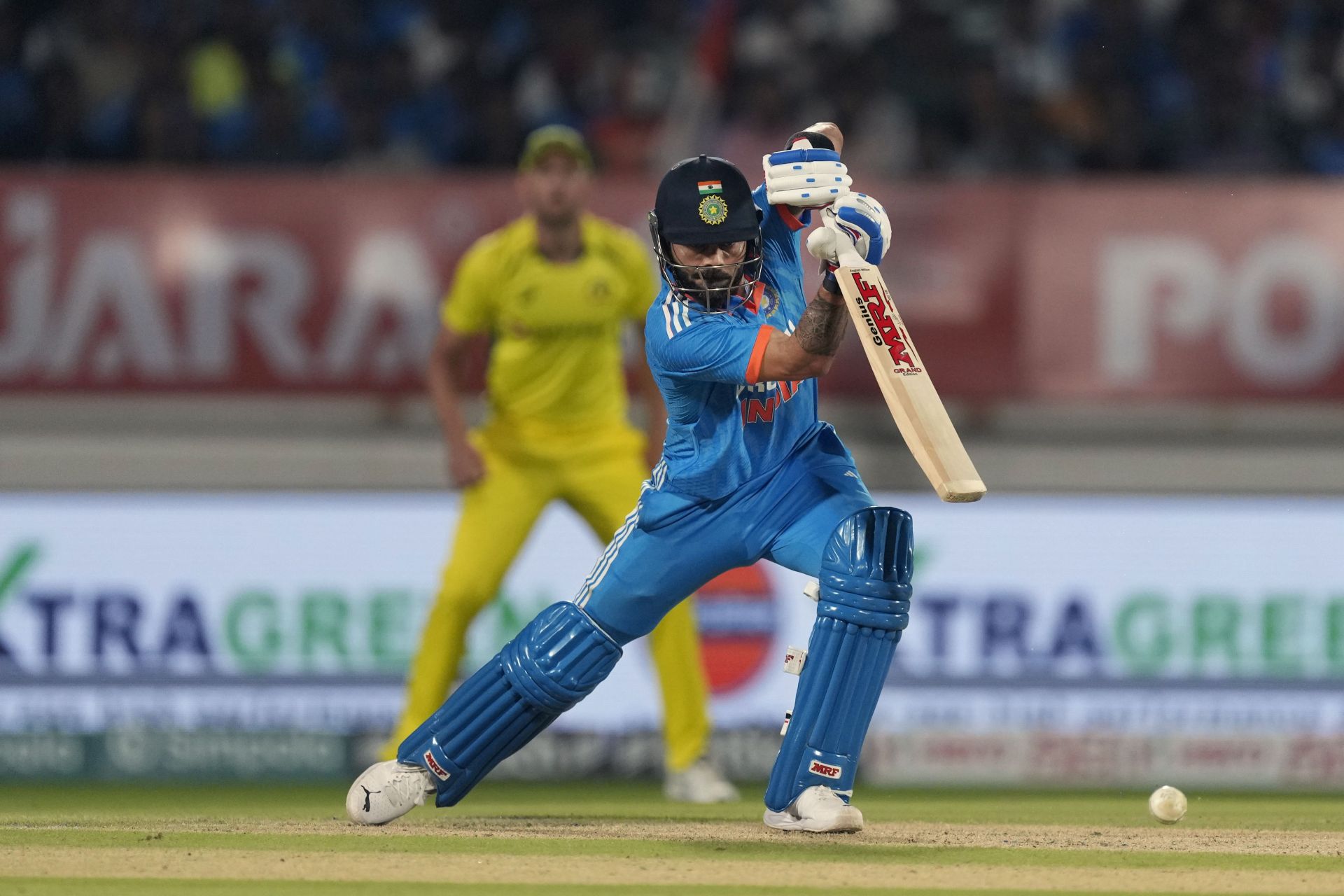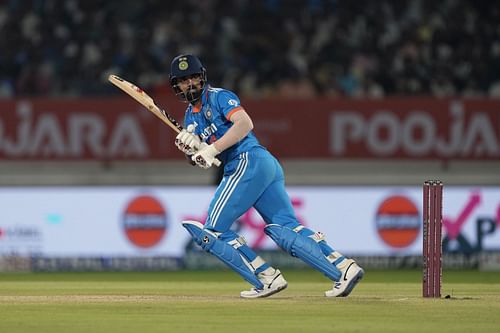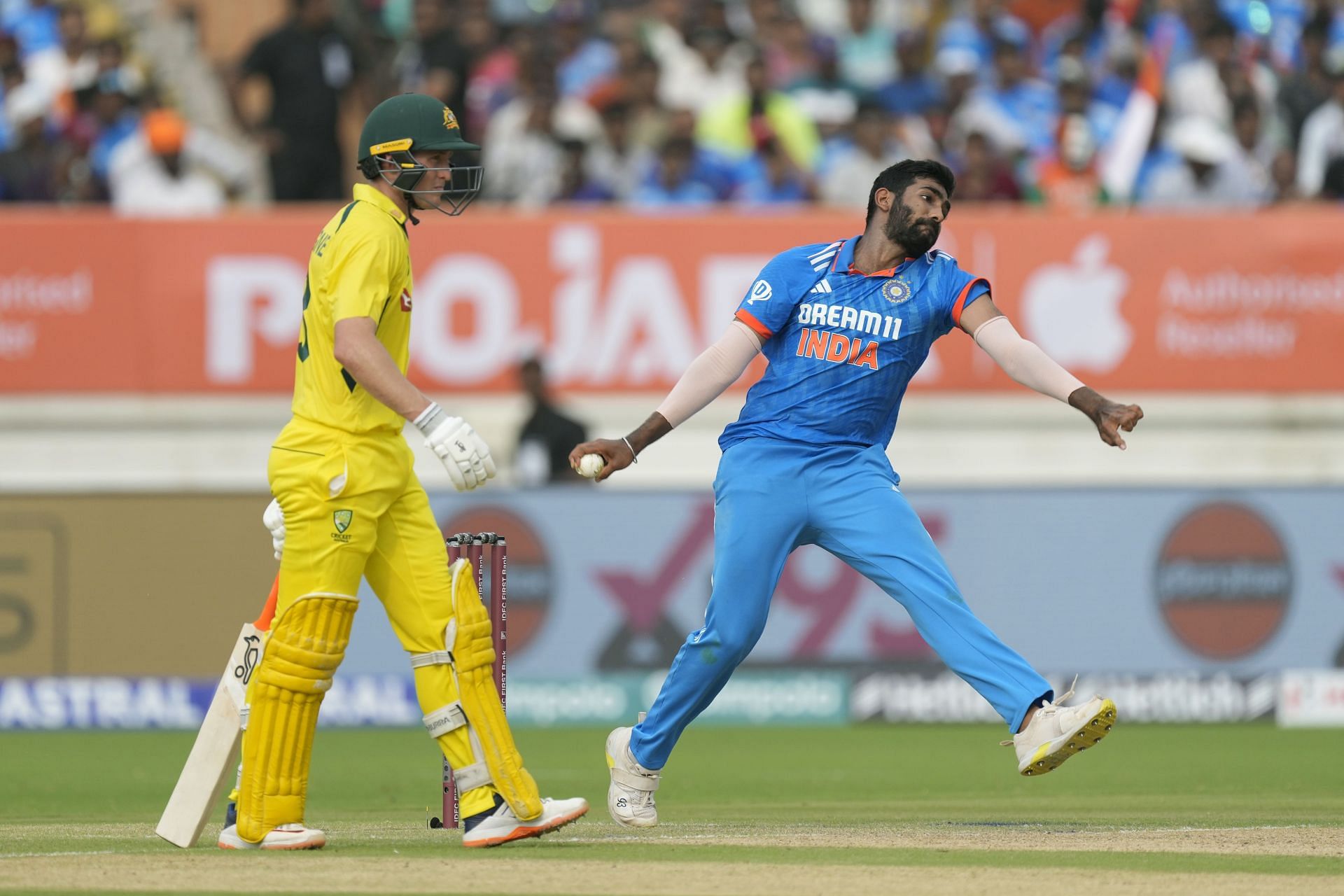
2 mistakes and 1 masterstroke by India in the 3rd ODI vs Australia
That's all, folks! Apart from a few warm-up games, Team India will have no more matches to finetune their preparations for the World Cup 2023, in which their opening game will be against Australia in Chennai on October 8.
The Men in Blue's final international game ahead of the World Cup didn't end on a great note, with the Aussies claiming a straightforward 66-run win on the back of an excellent batting effort. Nevertheless, India ticked off several boxes over the course of the three-match series, which they won by a 2-1 margin.
Rohit Sharma and Co. will no doubt reflect on their performances against Australia. While they didn't have a full-strength side in any of the three matches, they will have several takeaways.
Here are two mistakes and one masterstroke made by Team India in the third ODI against Australia.
#3 Mistake - India's strategy to counter Glenn Maxwell wasn't effective

India started well in the chase despite having a makeshift opener alongside Rohit Sharma in Washington Sundar. The youngster never really got going and meandered along at a strike rate hovering near 50, putting the onus on his partner to do the heavy lifting.
Rohit did that superbly, but India couldn't carry that momentum through the innings. Wickets fell to a rather unlikely hero in Glenn Maxwell, who got the odd ball to turn and troubled even the right-handers in the opposition.
Sundar picked out long-off, and after Virat Kohli was dismissed trying to heave a short ball from the off-spinner over midwicket, the wheels slowly started coming off. KL Rahul didn't show the required intent after coming to the crease and paced his innings too slowly at the start before failing to make up for the dots he played.
Shreyas Iyer and Suryakumar Yadav were dismissed before the 40-over mark, with the former being deceived by a straighter one from the Aussie off-spinner. With virtually no batting from No. 8, the hosts were always going to be in trouble.
India should've played out Maxwell without taking many risks and capitalized on the fast bowlers' overs. Mitchell Starc and Pat Cummins had economy rates of 7.6 and 7.4 respectively, proving that they were much easier targets.
#2 Masterstroke - The Men in Blue resorted to yorkers and cutters in the second half of the Aussie innings

Australia were at 215/1 in the 28th over, with Mitchell Marsh and Steve Smith making merry at the crease. David Warner had already set the tone with a bright fifty, and the batting depth at the side's disposal made things look ominous for Team India.
However, Rohit and Co. pulled things back decently thereafter. Although it looked like 400 would be rather easily scaled at one stage, they found their bearings in the second half and managed to chip in with regular wickets.
The primary reason behind that was their reliance on yorkers and cutters, which were hard to get away when executed right. It was in stark contrast to their plans in the first phase of the innings, where they tried to hurry the Aussie batters with pace and bounce, often erring in both line and length.
Jasprit Bumrah's brilliance provided two wickets, and the fast bowlers executed their plans at the death. Only 102 runs were scored by Australia off the last 16 overs, with four wickets falling in that phase, and only 66 off the last 10. Apart from the top four, none of the batters scored at a strike rate over 100.
#1 Mistake - India's bowlers hit the wrong lines and lengths to Australia's top order

While India did pull things back at the death, the only reason they needed to do so was because they leaked runs in the first half of the Australian innings. Concerningly, it was a near first-choice bowling attack that was taken to the cleaners.
Mitchell Marsh and David Warner looked to be aggressive right from the outset, and the hosts' pace trio suffered. Bumrah was carted around by Marsh, who plundered fours and sixes at will off the spearhead. Mohammed Siraj and Prasidh Krishna didn't escape punishment, with the inaccurate trio being taken for 22 fours and six sixes in the 24 combined overs they bowled.
All three bowlers fed short and wide stuff to both Warner and Marsh, who were more than happy to play the pull over midwicket. Things got worse against the less dynamic Steve Smith, who was offered plenty of boundaries off his pads in an attempt to cramp him for room.
Bumrah and Siraj might encounter such flat decks at the World Cup, and they will need to be better prepared. They can't rely on Kuldeep Yadav to work his magic in the middle overs each time, and more importantly, can't afford to play into the strengths of the opposition batters.